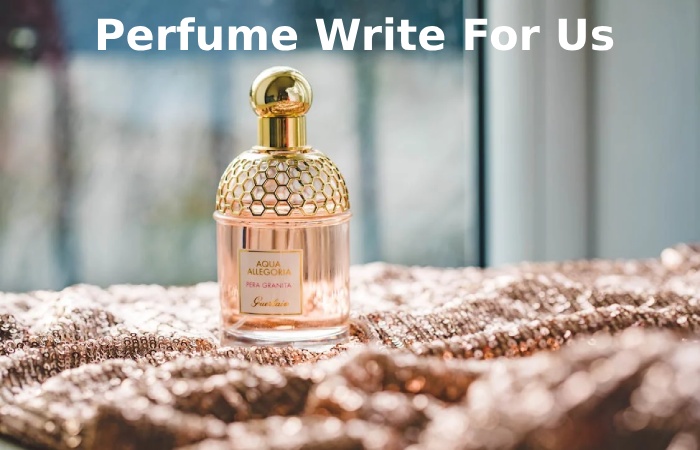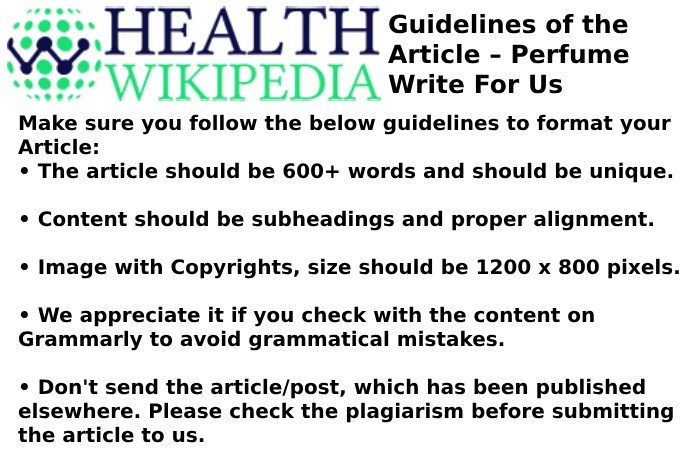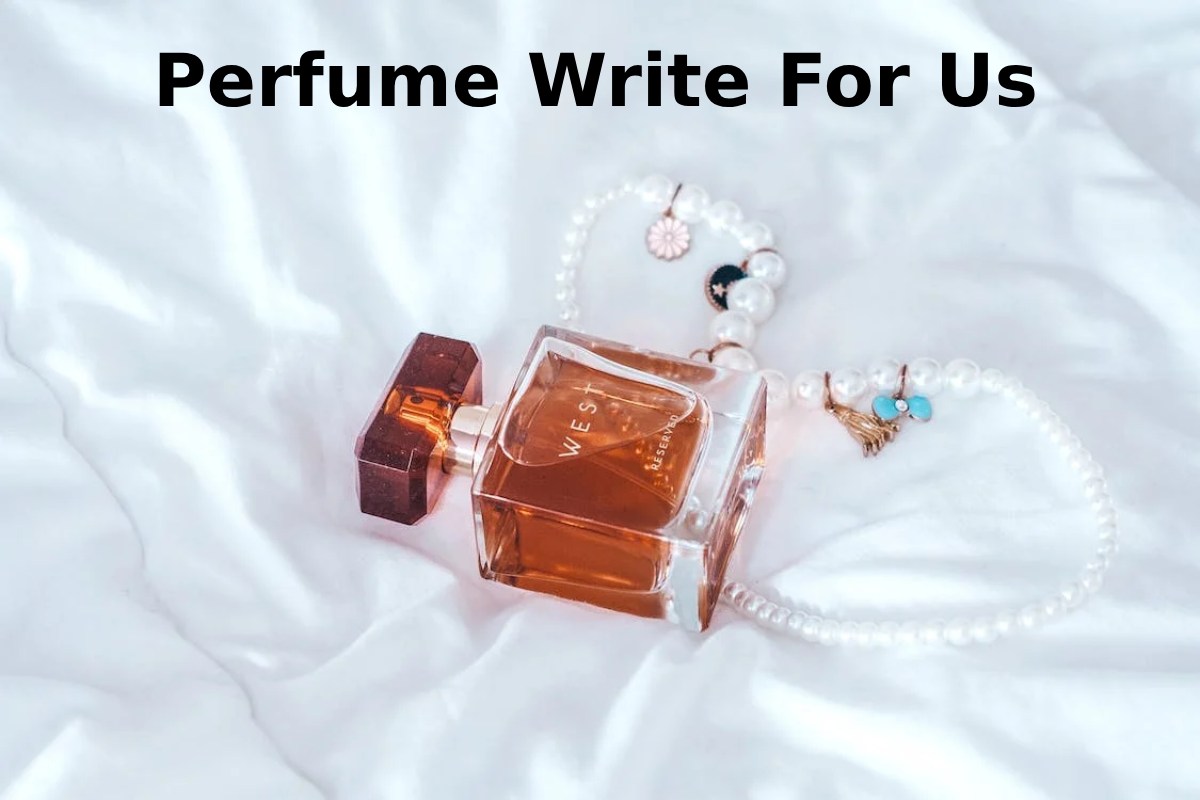Perfume Write For Us – Perfumes result from a composition of natural and synthetic essences that, when combined, result in a unique and distinctive patented aroma for each brand. Therefore, it is precisely these concentrated aromatic substances that make up each formula, which are known as fragrances. These, unlike perfumes, are usually sold in specialized or natural houses since they are the raw materials to create commercial formulas.
Therefore, depending on the series of fragrances used, perfumes can be classified according to their structure as monolithic, which are created with one or very few essences or, through multiple phases, dividing hierarchically in the manner of an olfactory pyramid.
What are they made of?
Regardless of the brand and the manufacturing process of each one, how perfumes are made is based on a compilation of numerous natural or synthetic fragrances, solvents, and fixatives. A mixture that, although simple, brings together at least 20 components, which, liable on their concentration, gives the formula a changed name, helping its classification.
Perfume classification
Beyond the number of essences mixed, the classification of the most popular perfumes is based on their composition, considering characteristics such as their density, intensity, and duration. That is where we can find aromatic formulas of different types that adapt to each need! Meanwhile, here are the variants that exist:
Perfume
However, it is the most intensely usable version of a fragrance whose concentration of ingredients reaches 20% to 30%. Thanks to its density, it can last on the skin for between 12 and 24 hours, making it perfect for those who love to keep an aroma intact throughout the day without having to reapply it.
Eau de parfum
However, with a fragrance concentration ranging from 15% to 20%, the Eau de parfum is the second most durable and intense version. This quality allows it to remain on the skin for an average period of 8 to 10 hours, although the range may vary due to the notes that compose it.
Eau de toilette
Also known by its Spanish name as toilet water, it contains 5% to 15% perfume oils. For this reason, the aroma is much lighter and more volatile than an Eau de parfum, as it lasts 4 to 6 hours, although there may be exceptions.
This is perfect to use daily since it is fresh and evident, but without being too intense, so that you can reapply it several times a day.
Cologne
Cologne water, also known by its name in French, eau de cologne, is a formula with a fresh, revitalizing, and citrus essence, thanks to its concentration of perfume oils from 2% to 6%. Although this is highly subtle, its duration can be extended by approximately 2 hours so that it can be reapplied during the day as many times as necessary, especially suitable for the hot seasons of the year.
Freshwater
It is the lightest and most diluted fragrance version, containing 1% and 3% of aromatic essence. It is an exceptionally fresh and volatile option, ideal for summer days when you want to apply a touch of scented mist constantly.
Perfume characteristics
- Volatility is the time it takes to evaporate and depends on the molecular weight of the substance.
- Tenacity is the property of upholding the original chord. That is, to remain for a long time without changing.
- Diffusion is the ability to be easily noticeable.
- Meanwhile, durability is the fixation of the molecule to the substrate and the ability to remain on the skin, cloth, paper, or any material it applies.
Most famous perfumes are made up of more than 50 ingredients. Therefore, depending on their proportions, they will give the characteristic notes of the smell, forming a pyramid described below.

Perfume structure
That is to say, perfumes are made up of a head, body, and base.
- Head or exit notes are the most volatile fragrance portion and are short-lived. They constitute the first impression one has of the perfume.
Olfactory Notes: Citrus, Fruits, Green notes, Aldehyde notes. - The middle or heart notes define the character of the fragrance. They are of medium volatility. They constitute the central theme of the perfume.
Olfactory Notes: Floral, Spicy, Herbal, Fruity. - The bottom or base notes are the most persistent; they will remain on the skin once the head and body notes have evaporated.
Olfactory Notes: Woods. Sweet notes, Ambers/Musks/Moss, Animal/Acordy notes.
What types of perfumes exist according to their concentration?
The perfume comprises oils and aromatic essences of animal, vegetable,e or synthetic origin. It contains chemical stabilizers to harmonize the tones of the fragrance.
According to perfumers, every perfume consists of 3 parts: the head or top notes. During the first 15 minutes, the initial aromatic notes called exit are perceived. Likewise, it is the initial impression of the perfume. Meanwhile, in the second set, age, the body is presented. Therefore, those tones give identity to theThroughix. However, we recognize the. The third stage, the base, is the final phase. Its notes leave a sensation of aroma before evaporating.
- Eau de Parfum is a hydrated perfume dissolved in distilled water. Therefore, it has a higher concentration of oil and less alcohol. An attention ratio is more significant than 20%; it usually lasts 8 hours.
- Eau de Toilette is toilet ter, and its name is due to its ingredients. Therefore, they can be lilac water, lavender, German medium, and violets. Likewise, it has more alcohol and less aromatic oils and is feeble and volatile in a concentration between 8% and 1le. However, using it in closed spaces where it is perceived at short distances is recommended.
- It is less concentrated in essence and alcohol. That is, it is the least dense of all. Therefore, it lasts less on the skin. Due to its duration, it needs constant touch-ups. However, its intensity is around 5%. Meanwhile, it lasts for 2 hours. Moreover, it is the cheapest of all.
- It is a fragrance with more concentration; its aroma can last all day. Therefore, it is solid and valuable. Therefore, its intensity is up to 30%. However, its duration is 8 hours. Meanwhile, it is the most expensive of the presentations.
Likewise, You can submit your articles at contact@healthwikipedia.com
How to Submit Your Perfume Articles (Perfume Write For Us)?
That is to say, To submit your article at www.healthwikipedia.com, mail us at contact@healthwikipedia.com
Why Write for Health Wikipedia – Perfume Write For Us

Perfume Write For Us
That is to say, here at Health Wikipedia, we publish well-researched, informative, and unique articles. In addition, we also cover reports related to the following:
Essential oil
Aroma compound
Fixative (perfumery)
Solvent
Odor
List of Nobel laureates
Leopold Ružička
Organic chemistry
Vanillin
Coumarin
Mesopotamia
Ancient Egypt
History of China
Ancient Rome
Chemist
Tapputi
Guidelines of the Article – Perfume Write For Us

Search Terms Related to Perfume Write For Us
write for us + skincare
”write for us” + hair care
perfume about us page
write for us beauty
write for us health
perfume page description
write for us nature
write for us fashion
skin care + “guest post”
become a guest blogger
submit post
write for us
writers wanted
guest post
looking for guest posts
guest posts wanted
guest posting guidelines
become an author
suggest a post
submit an article
guest posts want
“guest post” or “guest blogging,” “write for us,” + “farming tips.”
blogging write for us
blogging + write for us
consulting guest blogging opportunity write for us
coaches guest blogging opportunity write for us
“guest post,” “guest blogging,” or “write for us,” “farming tips.
blogging+travel “write for us.”
guest blogging + “write for us.”
write for us + guest blogging
in URL:” write-for-us.”
“write for us,” “blogging tips.”
blogging “write for us.”
contributor guidelines
contributing writer
write for us blogging
blogging tips write for us
blogging + “write for us”
Fragrance Families Write For Us
Perfume blending techniques Write For Us
Aromatherapy in perfumery Write For Us
Essential oil extraction methods Write For Us
Perfume history and origins Write For Us
Natural vs. synthetic fragrances Write For Us
Perfume bottle design Write For Us
Perfume marketing strategies Write For Us
Scent composition Write For Us
Perfume Packaging Trends Write For Us
Perfume ingredients and their sources Write For Us
Artisanal perfumery Write For Us
Celebrity-endorsed fragrances Write For Us
Perfume longevity and sillage Write For Us
Sustainable practices in the fragrance industry Write For Us
Perfume regulations and certifications Write For Us
The psychology of scent Write For Us
Cultural influences on fragrance preferences Write For Us
Perfume layering techniques Write For Us
DIY perfume-making Write For Us
Perfume and personal branding Write For Us
Niche Perfumery Write For Us
Fragrance testing and evaluation Write For Us
Perfume storage tips Write For Us
Fragrance trends in different seasons Write For Us
The role of perfumers in the industry Write For Us
Olfactory art and installations Write For Us
Perfume and Memory Association Write For Us
Perfume collecting as a hobby Write For Us
Fragrance-inspired literature and poetry Write For Us
[“write for us” + “beauty”]
[write for us pure fashion]
[write for us + fashion shoes]
[write for us” jewelry]
[”write fo us”perfume]
[Perfume “guest post]
[Perfume “write for us”]
[Perfume “guest article”]
[Perfume “guest post opportunities”]
[Perfume “this is a guest post by”]
[Perfume “looking for guest posts”]
[Perfume “contributing writer”]
[Perfume “want to write for”]
[Perfume “submit blog post”]
[Perfume “contribute to our site”]
[Perfume “guest column”]
[Perfume “submit Facebook Ads”]
[Perfume “submit Facebook Ads”]
[Perfume “This post was written by”]
[Perfume “guest post courtesy of”]
[Perfume “guest posting guidelines”]
[Perfume “suggest a post”]
[Perfume “submit an article”]
[Perfume “contributor guidelines”]
[Perfume “contributing writer”]
[Perfume “submit news”]
[Perfume “submit post”]
[Perfume “become a guest blogger]
[Perfume “guest blogger”]
[Perfume “guest posts wanted”]
[Perfume “guest posts wanted”]
[Perfume “guest poster wanted”]
[Perfume “accepting guest posts”]
[Perfume “writers wanted”]
[Perfume “articles wanted”]
[Perfume “become an author”]
[Perfume “become guest writer]
[Perfume “become a contributor”]
[Perfume “submit guest post”]
[Perfume “submit an article”]
[Perfume “submit article”]
[Perfume “guest author”]
[Perfume “send a tip]
[Perfume inurl: “guest blogger”]
[Perfume inurl: “guest post”]


